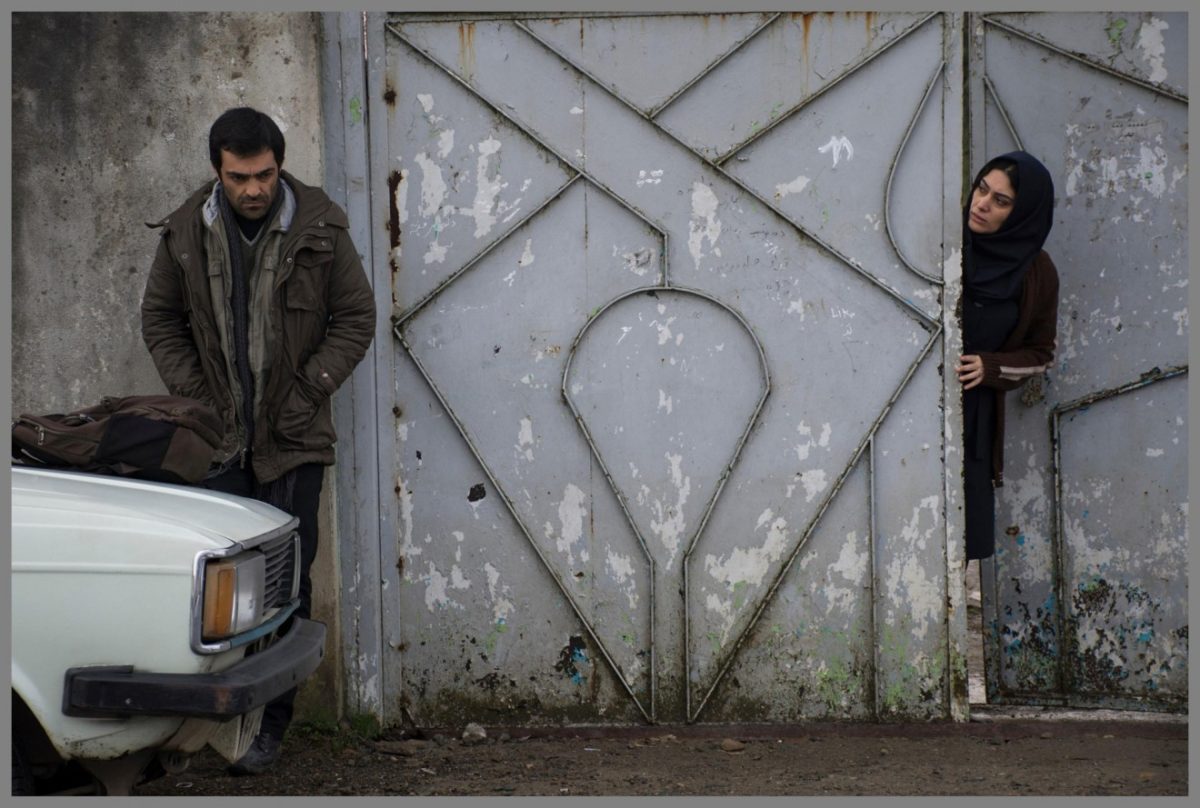“Burying the lede” is an allegation usually leveled at journalists, but it could be reasonably applied to the one Iranian film that came to Cannes this year (and took home the Un Certain Regard prize). Neither the protagonist nor his situation at hand is clear for a significant portion of A Man of Integrity. The opening scene relays this in a self-reflexive gesture: the characters are moving through a dimly-lit house seeking something as hidden away as this movie’s themes or even setting. Watermelons, as the stash turns out to contain, thus manage to become key players in the gray, autumnal universe within which this film drifts.
Ambiguity hardens into total clarity rather suddenly, laying bare the gimmickry of the opening subterfuge. The film will come to rely on symbolism as a conduit for its more subversive content, but with this start it announces a belief in opacity for opacity’s sake. At last, through a spousal tête-à-tête, we get a proper introduction to Reza, the man we’ve seen tending to the goldfish reserve on his land. He’s only recently gotten out of jail, his wife reminds him, and they’re hard-up for cash. The local powers that be—whether they are official authorities or a loosely organized mob is one of the film’s more compelling obscurities—seem intent on trying to relieve the desperate farmer of his grounds at little cost of their own. After the spare moment or two of expository interjection, entropy reigns. An affective flatness is kept in place largely by an unvariegated shooting style. The camera is almost always close to its subjects and inflexibly steady. What this rigidness is meant to convey seems misplaced, in opposition as it is to the characters’ yearning to breathe freely. It does, however, mirror the performance of Reza Akhlaghirad, who inhabits the role with a touch of the intense fixity of a Bressonian non-actor. Given his homonymous birth and character names, he might even be playing a version of himself. At its best, the film works as a character study, hewing to the mercurial and the discerning, like Reza as he sifts through his pond for the most sparkling goldfish.
Perhaps to offset the bleakness of the life being examined, though, writer-director Mohammad Rasoulof shows equal or even greater interest in capturing the majesty of the snowy hills and harrowingly cloudy skies of the Northern Iranian landscape beyond Reza’s goldfish farm. The main attempt to foreground Reza’s connection to the environment comes in the recurring apparition of a cave meant to be taken as a palace of his mind. The tangible setting just past the psychodrama might have been much more fertile. We get only a vague sense of the region’s various ethnic and religious clashes, the largest of which is presumably between Shi’ites and Sunnis. (These tensions affecting town life are alluded to obliquely in the dealings of Reza’s wife, as a schoolteacher, but seem not to be sufficiently grasped by the couple, who moved north from Tehran.) Such complexities of modern Iran gave weight to the far superior Baran (Majid Majidi,2001), which similarly dealt not only with faith-based but also class conflict. Though less central here than in the earlier film, the instability and discomfort of those inhabiting a part of Iran unwelcome to any sort of minority proves to be a rich vein worth tapping into further.
The trouble Reza is running into in town is accentuated by a visit to his sister in Tehran, who informs him that their brother Onid faces up to six years’ imprisonment for politically subversive activity. In a forceful match cut, this car-bound conversation segues into another, between Reza and his wife, about what avenues they have left to take. To its credit, A Man of Integrity breaches the subjects of the unremitting harshness of bureaucracy and the more pernicious matter of police corruption that are clearly taboo under the current regime of Iran. Undoubtedly, this audacity has catalyzed the considerable punishment Rasoulof has faced in Tehran since returning from the festival circuit.
But the strokes with which Rasoulof establishes the backroom negotiations that are making Reza and his family’s lives unravel at the seams feel too impressionistic for a foreign viewer to discern in full. We’re left with a sizable set of questions regarding their implication in some kind of drug ring that remains ominously off-screen. Who is in charge, and under what aegis, is at the forefront of these, as we only learn of the antagonists that they work for “the Company.” Is Reza orbiting around the faceless Company, or is the Company orbiting around him? With what ease could the traces of his homestead and presence thereupon be eradicated completely? Such is the type of pseudo-philosophical wondering A Man of Integrity asks for its audience to do. Otherwise, it lets us sit back and watch Reza measure out life with watermelons, wringing each one out into a bulbous glass of juice.
